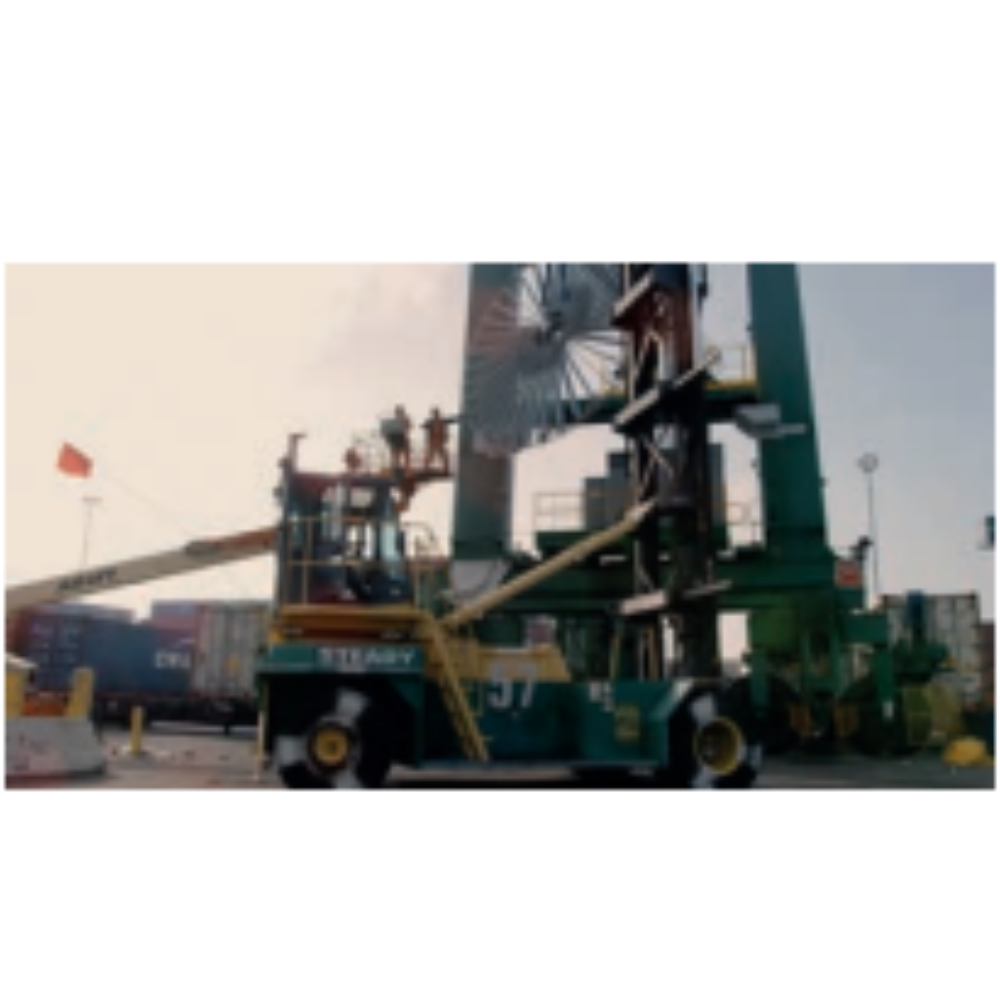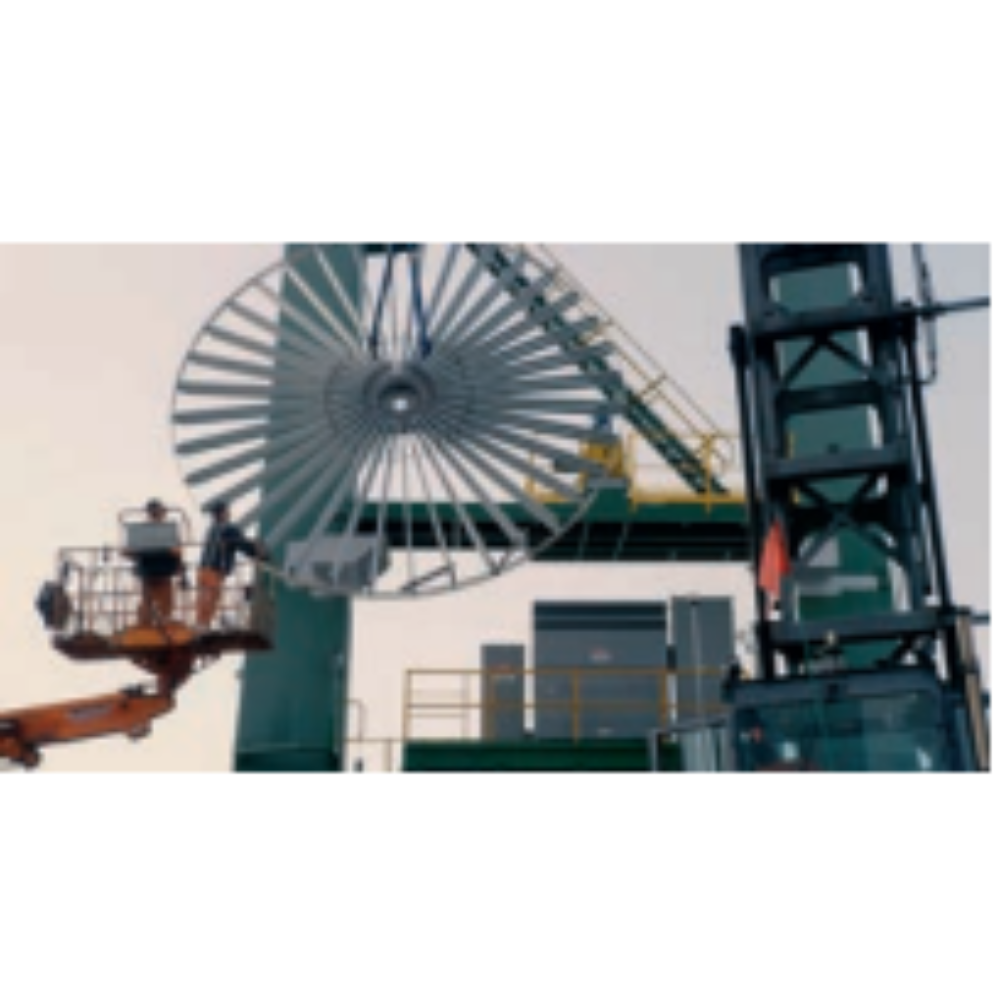Port of long beach SSA Marine retrofits RTG cranes to run on electric
22 February 2023Longshore workers are using nine electric cranes to stack containers at one of the Port of Long Beach’s busiest terminals in a large-scale demonstration project, as the port and its partners pursue zero emissions cargo handling by 2030.
Longshore workers are using nine electric cranes to stack containers at one of the Port of Long Beach’s busiest terminals in a large-scale demonstration project, as the port and its partners pursue zero emissions cargo handling by 2030.
The demonstration at SSA Marine Pier J is part of the Zero-Emissions Terminal Equipment Transition Project, which is funded in part by a $9.7m California Energy Commission (CEC) grant.
The port, the CEC and the utility Southern California Edison (SCE) are partnering on the project to put into daily service 21 human-operated vehicles that are zero- or near-zero emissions at three of the port’s marine terminals and with trucking company Total Transportation Services to test their performance in a real-world setting.
As part of the project, SSA retrofitted nine of its existing ZPMC diesel-powered rubber-tyred gantry (RTG) cranes to run on electricity, recently completing the last one. The conversion equipment was provided by Cavotec and installed by SSA and the main electrical power equipment and installation was by SCE.
“In the decades since we created the Green Port Policy, our ambitions have grown from cleaning the air for our community to showing the world it’s possible to do that everywhere,” said Mario Cordero, executive director, Port of Long Beach. “These demonstrations are designed to commercialise heavy-duty zero-emissions equipment and vehicles to combat pollution but also to fight climate change, the effects of which we are seeing in the news almost every day.”
Sharon Weissman, president, Long Beach Harbor Commission, thanked SSA Marine, the International Longshore and Warehouse Union and its partners for their collaboration on meeting green sustainability goals.
“The future is zero emissions, and we are going to continue to do everything we can to lead the industry,” she said.
“SSA is thankful for the opportunity to partner with the Port of Long Beach and the California Energy Commission to complete this project,” said Scott Hainlen, superintendent, SSA Terminals.
“We look forward to continuing our efforts in reducing emissions from all our operations in Long Beach.”
In 2017, the ports of Long Beach and Los Angeles approved an update to its Clean Air Action Plan, setting a goal of transitioning all terminal equipment to zero emissions by 2030 and drayage trucks by 2035.
The Zero-Emissions Terminal Equipment Transition project is anticipated to annually reduce greenhouse gases by more than 1,323 tons and smog-causing nitrogen oxides by 27 tons.
Longshore workers are using nine electric cranes to stack containers at one of the Port of Long Beach’s busiest terminals in a large-scale demonstration project, as the port and its partners pursue zero emissions cargo handling by 2030.
The demonstration at SSA Marine Pier J is part of the Zero-Emissions Terminal Equipment Transition Project, which is funded in part by a $9.7m California Energy Commission (CEC) grant.
The port, the CEC and the utility Southern California Edison (SCE) are partnering on the project to put into daily service 21 human-operated vehicles that are zero- or near-zero emissions at three of the port’s marine terminals and with trucking company Total Transportation Services to test their performance in a real-world setting.
As part of the project, SSA retrofitted nine of its existing ZPMC diesel-powered rubber-tyred gantry (RTG) cranes to run on electricity, recently completing the last one. The conversion equipment was provided by Cavotec and installed by SSA and the main electrical power equipment and installation was by SCE.
“In the decades since we created the Green Port Policy, our ambitions have grown from cleaning the air for our community to showing the world it’s possible to do that everywhere,” said Mario Cordero, executive director, Port of Long Beach. “These demonstrations are designed to commercialise heavy-duty zero-emissions equipment and vehicles to combat pollution but also to fight climate change, the effects of which we are seeing in the news almost every day.”
Sharon Weissman, president, Long Beach Harbor Commission, thanked SSA Marine, the International Longshore and Warehouse Union and its partners for their collaboration on meeting green sustainability goals.
“The future is zero emissions, and we are going to continue to do everything we can to lead the industry,” she said.
“SSA is thankful for the opportunity to partner with the Port of Long Beach and the California Energy Commission to complete this project,” said Scott Hainlen, superintendent, SSA Terminals.
“We look forward to continuing our efforts in reducing emissions from all our operations in Long Beach.”
In 2017, the ports of Long Beach and Los Angeles approved an update to its Clean Air Action Plan, setting a goal of transitioning all terminal equipment to zero emissions by 2030 and drayage trucks by 2035.
The Zero-Emissions Terminal Equipment Transition project is anticipated to annually reduce greenhouse gases by more than 1,323 tons and smog-causing nitrogen oxides by 27 tons.


